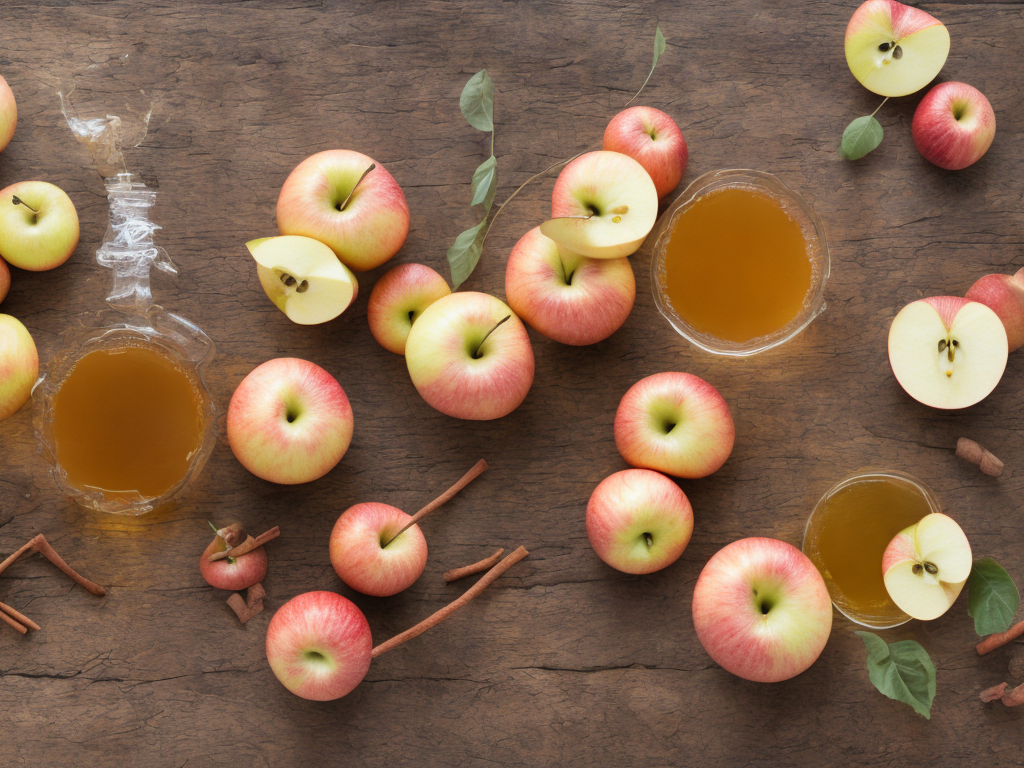
Apple cider and apple juice are two popular beverages made from apples. While they may seem similar, there are notable differences between the two in terms of how they are made, their taste, and their nutritional content. In this article, we will explore the contrast between apple cider and apple juice, helping you understand their unique characteristics and benefits.
One of the main differences between apple cider and apple juice lies in the way they are produced. Apple cider is typically made by grinding and pressing fresh apples, then extracting the juice. This process retains the pulp and sediment, giving apple cider a cloudy appearance and a thicker texture. On the other hand, apple juice is usually made by filtering and pasteurizing the extracted juice, resulting in a clear liquid with a smoother consistency.
The taste of both beverages also sets them apart. Apple cider is known for its rich, robust flavor with the perfect balance of sweetness and tartness. Its natural freshness and complexity make it a delightful beverage for many, especially during the fall season. On the contrary, apple juice tends to have a more mellow and sweet taste. It is often described as crisp and refreshing, making it a popular choice for those who prefer a lighter and less assertive flavor.
Another distinction between apple cider and apple juice is their shelf life. Due to the pasteurization process, apple juice has a longer shelf life and can be stored for several months, even without refrigeration. On the other hand, apple cider, being unfiltered and unpasteurized, has a shorter shelf life and must be refrigerated. Without proper refrigeration, apple cider can ferment due to its natural sugars and become alcoholic, which is why it is advised to consume it within a few days or to purchase commercially pasteurized apple cider.
Additionally, nutritional differences can be found between these two apple-based beverages. Apple cider tends to offer more nutritional benefits compared to apple juice because it retains more of the apple's natural components, such as fiber and antioxidants. The presence of fiber in apple cider aids in digestion and promotes a healthy gut. It also helps to control blood sugar levels and contributes to a feeling of fullness, making it a suitable choice for those aiming to regulate their weight. Antioxidants found in apple cider are known to boost the immune system and reduce the risk of chronic diseases.
Apple juice, on the other hand, may contain a slightly higher amount of vitamin C due to the pasteurization process. However, it often lacks the dietary fiber found in apple cider. Some commercially available apple juices may also have added sugar or preservatives, reducing their overall nutritional value. It is important to read the labels to ensure you are choosing a product with no added sugars or unnecessary additives.
Both apple cider and apple juice can be versatile ingredients for cooking and baking. Apple cider is often used in traditional recipes, such as mulled cider, apple cider donuts, and apple cider vinegar. Its rich and distinct flavor can add depth to stews, marinades, and desserts. Apple juice, with its neutral and less pronounced taste, is commonly used as a base for various fruit punches, smoothies, and cocktails. It can be incorporated into sauces, glazes, and dressings to enhance the flavor without overpowering other ingredients.
In conclusion, apple cider and apple juice may seem similar at first glance, but they have significant differences in terms of production, taste, shelf life, and nutritional content. Apple cider is made from fresh apples, retaining the pulp and sediment, resulting in a cloudy and thicker texture, while apple juice is filtered and pasteurized, resulting in a clear and smoother consistency. Apple cider has a richer, more complex flavor, whereas apple juice is milder and sweeter. Apple cider is packed with fiber and antioxidants, making it a healthier option, while apple juice may provide slightly more vitamin C but often lacks the dietary fiber. Both can be used for cooking and baking, with apple cider adding a distinct flavor and apple juice serving as a neutral base. Ultimately, the choice between apple cider and apple juice depends on personal preference and desired nutritional benefits.
 Self-Instruct
Self-Instruct